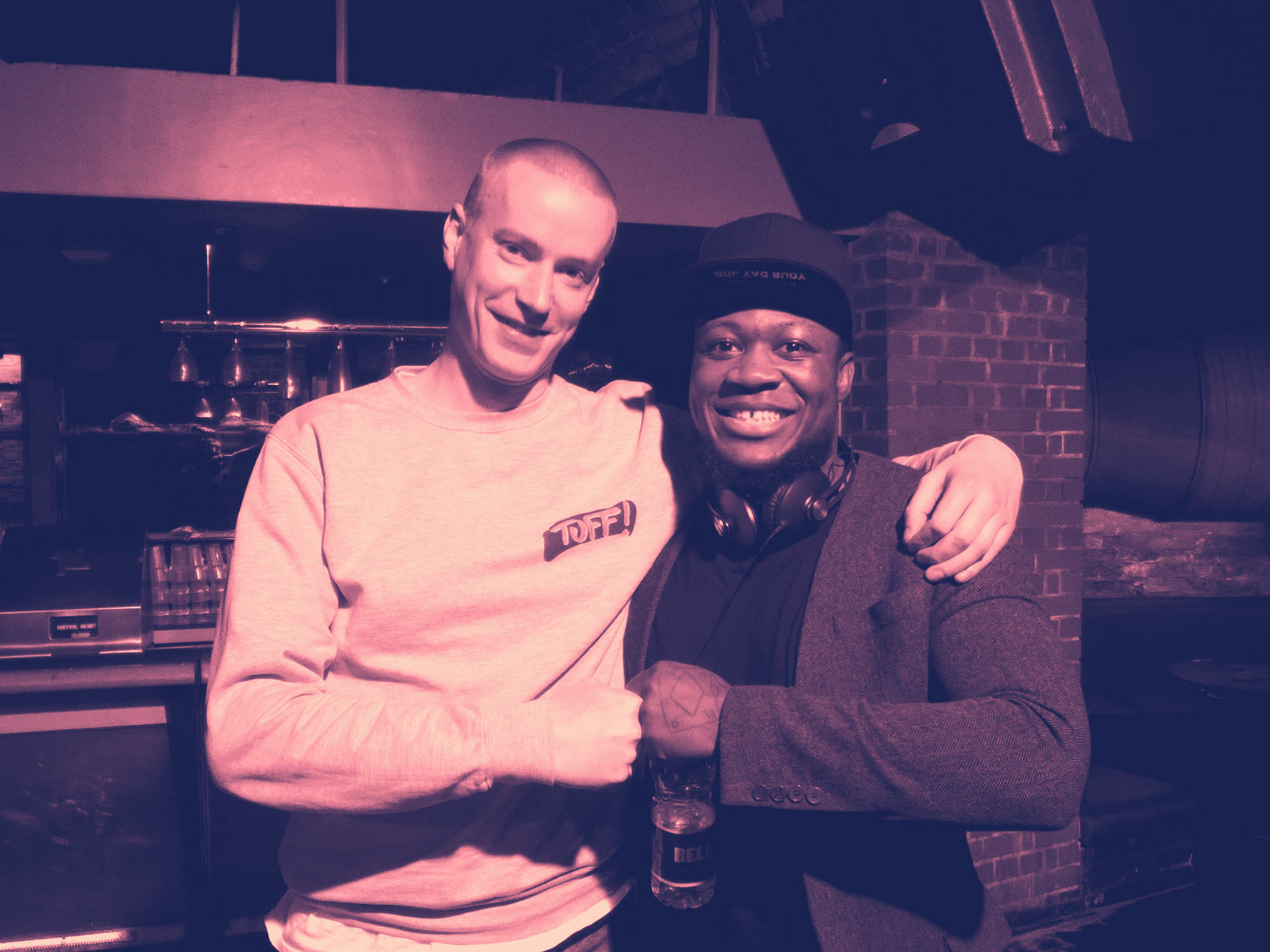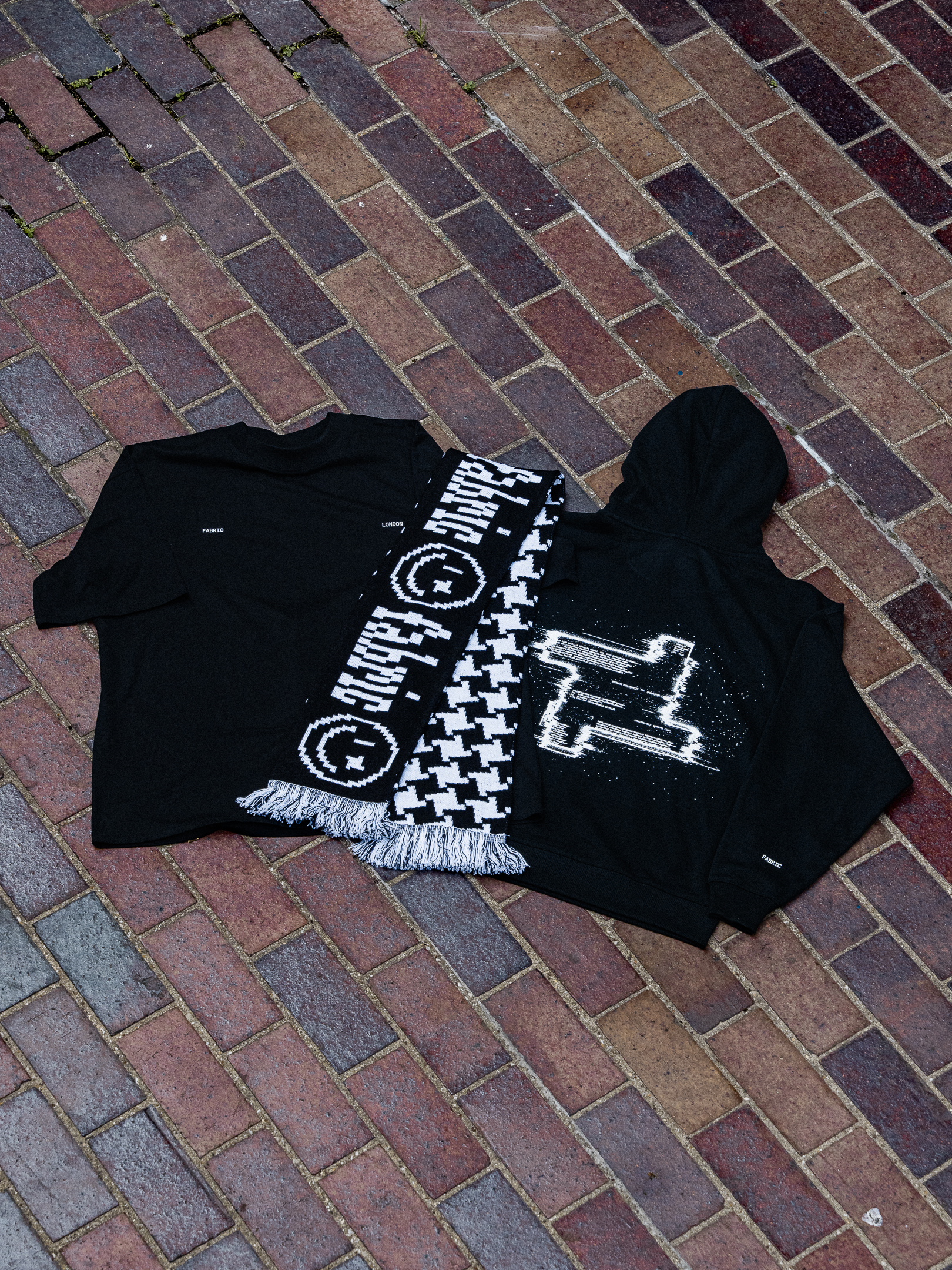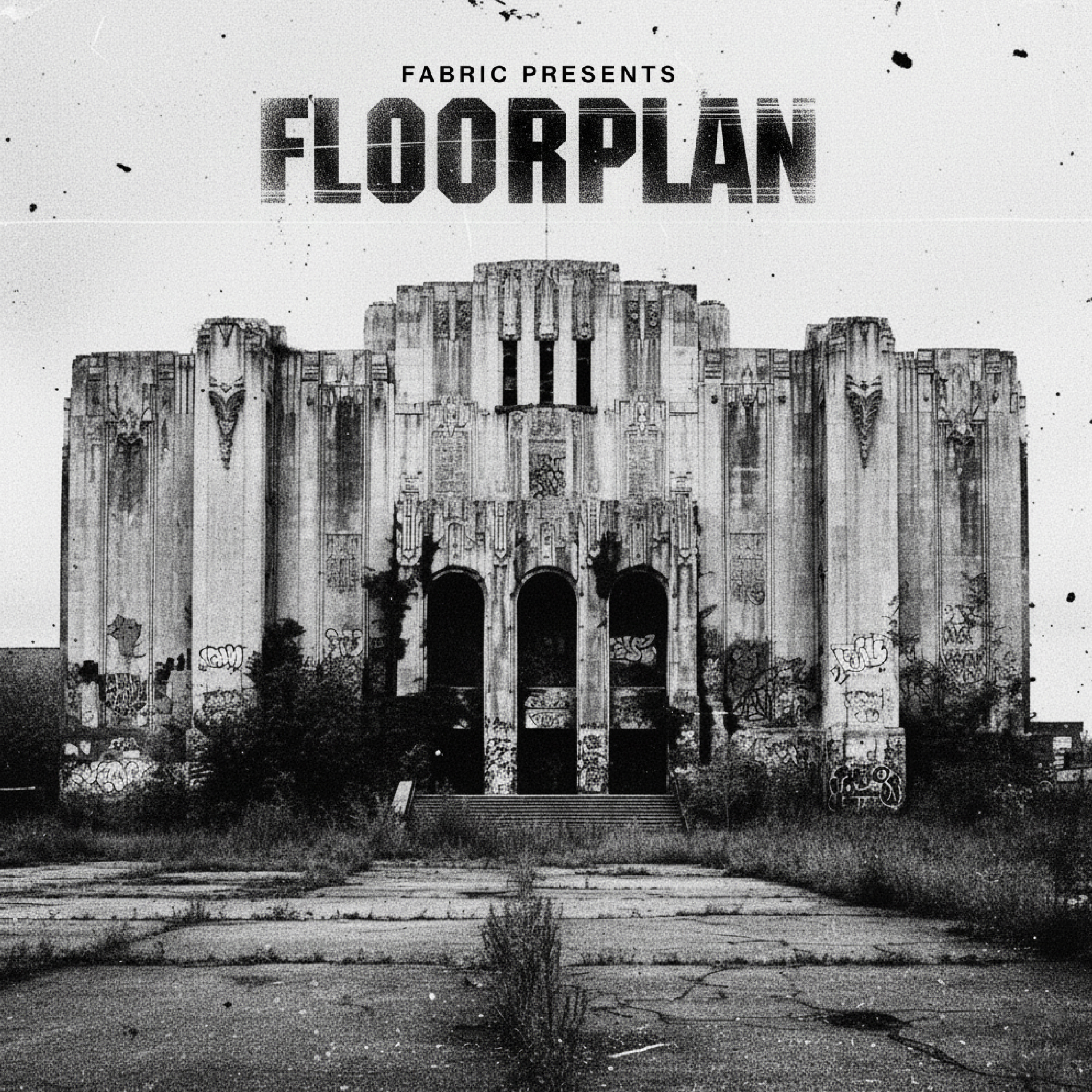News
In Conversation: Pinch & Benga Look Back At Their Beginnings
 The names Pinch and Benga will forever be linked by two simple syllables: ‘dub’ and ‘step’. Independently (and occasionally working to release music together), they’ve helped contribute to and forge the identity of one of the newest forms of dance music for nigh over a decade now. In fact, Pinch’s Bristol based Tectonic label celebrated ten years of operation last year having released a frankly barmy amount of landmark 12”s and scene defining albums alike. It’s also pretty well documented that Benga’s early productions, alongside his running mate Skream, helped breathe life into the very concept of ‘dubstep’ way before their combined work (alongside Artwork) as Magnetic Man took the art form interstellar. But after a near two year hiatus from music following a diagnosis of bi-polar disorder and schizophrenia, Benga will return to the decks of Room Two tonight fully refreshed.
Having already discussed his condition at length with The Guardian after revealing all in a very candid manner on Twitter, Benga’s now very vocal about his excitement to be making music again and channelling his experiences into his art. Pinch too – though admittedly nowhere near as dramatically – has been returning to his roots, recapturing the freedom and creativity of the early ‘00s that saw the birth of dubstep. Talking to us on a Tuesday evening he says he jumped at the chance to host Benga’s feted return to DJing; and likewise Benga is frank in admitting that he couldn’t think of a more appropriate stage for his comeback.
If Pinch is the learned professor – referencing everything from Alan Moore to half lives and exponential decay, and able to turn out potted histories of the UK’s various strands of musical heritage with the same ease as if he were telling you about what he’d been up to that afternoon – then Benga is very much the attentive student. For the duration of our shared conversation, he sits with a wide-eyed stare as though the more open his lids are the more information he’ll be able to absorb into the brain behind them. But Benga’s not without his own epiphanies. They come frequently, and when they do they’re forcefully animated yet crisply distilled and enough to bring the rest of the room to a quiet that matches his own bouts of attentive silences. Much like, as it happens, his music – just as Pinch’s stories and his records (that he admits can be more drawn out in their making) are similar in that they’re both studied exercises in the fusion of ideas.
“It probably wasn’t until 2005 - I don’t think I knew you in 2004 – you and Skream were still a mystery to me at that stage,” Pinch says, struggling to recall exactly when and where he and Benga first crossed paths. “I just remember I was very surprised at how young you guys were when I found out, because you didn’t sound that old on record,” he continues. “As far as my ears were concerned, at that time, Plasticman [Plastician] was a giant and you were a lot older than you actually were.” The pair then pick through the paucity of their recollections: the early FWD>> days when, Pinch says, “there was only about fifty people into the sound”, the first DMZ at 3rd Base, though both of them try but neither of them can remember who actually played, before giving in. “This was over ten years ago. There’s not a single cell in either of our bodies that was still there ten years ago,” Pinch jokes, and is met with a crescendo of laughter from Benga, exclaiming, “True statement, that’s a true fucking statement, that. Different cells, mate!”
The names Pinch and Benga will forever be linked by two simple syllables: ‘dub’ and ‘step’. Independently (and occasionally working to release music together), they’ve helped contribute to and forge the identity of one of the newest forms of dance music for nigh over a decade now. In fact, Pinch’s Bristol based Tectonic label celebrated ten years of operation last year having released a frankly barmy amount of landmark 12”s and scene defining albums alike. It’s also pretty well documented that Benga’s early productions, alongside his running mate Skream, helped breathe life into the very concept of ‘dubstep’ way before their combined work (alongside Artwork) as Magnetic Man took the art form interstellar. But after a near two year hiatus from music following a diagnosis of bi-polar disorder and schizophrenia, Benga will return to the decks of Room Two tonight fully refreshed.
Having already discussed his condition at length with The Guardian after revealing all in a very candid manner on Twitter, Benga’s now very vocal about his excitement to be making music again and channelling his experiences into his art. Pinch too – though admittedly nowhere near as dramatically – has been returning to his roots, recapturing the freedom and creativity of the early ‘00s that saw the birth of dubstep. Talking to us on a Tuesday evening he says he jumped at the chance to host Benga’s feted return to DJing; and likewise Benga is frank in admitting that he couldn’t think of a more appropriate stage for his comeback.
If Pinch is the learned professor – referencing everything from Alan Moore to half lives and exponential decay, and able to turn out potted histories of the UK’s various strands of musical heritage with the same ease as if he were telling you about what he’d been up to that afternoon – then Benga is very much the attentive student. For the duration of our shared conversation, he sits with a wide-eyed stare as though the more open his lids are the more information he’ll be able to absorb into the brain behind them. But Benga’s not without his own epiphanies. They come frequently, and when they do they’re forcefully animated yet crisply distilled and enough to bring the rest of the room to a quiet that matches his own bouts of attentive silences. Much like, as it happens, his music – just as Pinch’s stories and his records (that he admits can be more drawn out in their making) are similar in that they’re both studied exercises in the fusion of ideas.
“It probably wasn’t until 2005 - I don’t think I knew you in 2004 – you and Skream were still a mystery to me at that stage,” Pinch says, struggling to recall exactly when and where he and Benga first crossed paths. “I just remember I was very surprised at how young you guys were when I found out, because you didn’t sound that old on record,” he continues. “As far as my ears were concerned, at that time, Plasticman [Plastician] was a giant and you were a lot older than you actually were.” The pair then pick through the paucity of their recollections: the early FWD>> days when, Pinch says, “there was only about fifty people into the sound”, the first DMZ at 3rd Base, though both of them try but neither of them can remember who actually played, before giving in. “This was over ten years ago. There’s not a single cell in either of our bodies that was still there ten years ago,” Pinch jokes, and is met with a crescendo of laughter from Benga, exclaiming, “True statement, that’s a true fucking statement, that. Different cells, mate!”
"Things get more maximal within a scene, busier and busier, beats become fuller and fuller and fuller and eventually it hits the point of overload." - PinchIt may be hard for some fans to believe that it’s been more than a decade since dubstep first began. What would later prove to be a pressure-cooked phase of development eventually exploded into something very far removed from its original sound and context. “A lot’s happened, and probably not a lot’s happened in that time,” says Pinch with a typically thoughtful lean. The proximity of those involved with the sound, both in terms of appearing regularly on the same bills and touring the same areas as well as having a shared approach to making music inevitably followed this trajectory too. The rapid growth and commercialisation of the genre - particularly among the US audience - from around 2011 onwards effected a splintering that saw many of the original players tunnelling off to focus on new and different projects be it Loefah’s drum machine house movement with Swamp 81 or Skream’s disco experimentation being perhaps the most prominent examples. “There’s always cycles of interest in dance music. And there’s a prevalent pattern if you take a step back and look across a period of the last twenty or thirty years of UK dance music,” says Pinch, recalling a conversation he had with Bristol legend Rob Smith [RSD] about the division between flat beat and jungle breaks within the rave scene of the late eighties. “If you follow the lineage of the beat, jungle, whatever you want to call it; it went from hardcore through to jungle, garage, grime, dubstep and then, as dubstep kind of lost its underground interest around 2011, there was a big rise here in the UK of UK house music. And that took a really heavy and dominant role in the sound that was popular in the underground and being produced,” Benga has been nodding throughout, and now begins to utter his agreement more vocally with a repeated series of “uh huh” and “yup.” “Right now,” Pinch continues, “I think it’s kind of had that little cycle and we’re seeing grime and dubstep coming back in and a whole different generation of kids who are into it and want the old records and, y’know, the authentic sound of dubstep rather than the kind of tear out, in your face, non-stop kind of sound. So I do see these cycles, it’s like maximal and minimal: things get more maximal within a scene, busier and busier, beats become fuller and fuller and fuller and eventually it hits the point of overload. A sensory overload and you need to strip it right back down and go minimal again and then it starts building up again.” By way of this short history lesson, it’s possible to draw a comparison between today’s, let’s call it (for the sake of illustration), ‘post-dubstep’ environment and the time that followed the heady peak of garage’s champagne-swilling, Moschino-wearing days that saw the beginning of the incubation of dubstep and grime. These ideas of a maximal or minimal approach to making dance music echo the processes of El-B, Oris Jay, Zed Bias and others who are credited with kick-starting the movement away from garage’s glitz and towards the more stripped back, spacious sound that eventually manifested itself in records with the likes of Pinch and Benga’s names on them. Let us not forget that January of this year marked the tenth anniversary of Mary Anne Hobbs’ ground-breaking Dubstep Warz show.
"I just want to innovate. Because that’s what I thought I was doing as a kid" - BengaHaving contributed then, however inadvertently, to the re-writing of the rulebook, it’s now time to tear it up again. “After taking my last two years out – listening, and looking around me – I realised that for me, as an artist, I have my own platform,” says Benga, with a palpable sense of excitement growing in his voice, “So then I was like ‘what do I actually really want to do?’ Because I just want to innovate. Because that’s what I thought I was doing as a kid.” And, of course, when he says “kid” he really means it: Pinch has already alluded to Benga’s early start in music, but it’s probably worth stating that he was just 15 when his debut record, a much sought after blue 12” for Big Apple Records, hit the shelves. This sense of unbridled, almost youthful independence (or, in Benga’s words, “fuck it, I can do whatever the fuck I want”) harks back to those early days in which the goal was simply to create something new. “It was a very creative time,” says Pinch, “and because there was no money in it, the only motivation for making the next tune was to be excited about the last tune and how you could do something different to it.” Dubstep’s internal competition was based solely on creativity rather than sales figures or ticket stubs and that’s something that many young producers should yearn for today. Although, Pinch admits, dubstep as a modern music scene now stands fairly unique in having benefiting from an extended period in which it remained “insulated” and its core members could “bounce creatively off each other in ways that had no motivation that was relative to success in a material sense.” The internet and the desire for instant gratification that it’s encouraged has effectively altered the way in which subcultures can develop their foundations. At this point, and seemingly in keeping with the theme of driving towards something new or just different from what has come before, Benga jumps in with a question of his own: “What do you think the future is?” In as much as the proliferation of the web may have, in Pinch’s eyes, cauterised the ability for scenes to gestate in the same way they once did, it of course also played a huge part in driving dubstep’s development by enabling collaboration and broadcast among that original small group of artists. The influence of technology is something that both he and Benga recognise as a potential catalyst for the next big shift within dance music. Again, Benga roots this is in a fierce independence that he argues has been given greater powers by the various new platforms and modes of communication that have sprung up along with the web. “I think the future just lies in certain artists, and realising that their [own] platforms are strong and that there is a lot of opportunity out there,” Benga says, answering his own question. “There are a lot of people that will like what you’re doing; you just have to stick with it.” It’s perhaps fitting then that much of what Benga says is littered with a word that crops up constantly at tech expos and press conferences: innovation. “I just feel that, in terms of people innovating and things staying strong,” he says, while Steve Jobs quietly eats his heart out somewhere in the ether; “it’s about artists being artists and having the balls to stick to their guns and say ‘I’m going to do this. It may sound different but as long as I stick with it, it’s going to work.’” This is an attitude that’s been epitomized by Pinch for years too; particularly so through his Tectonic Recordings imprint. Tonight’s Room Two lineup is testament to this, marrying as it does a cast of equally uncompromising artists who are held together by their shared desire to explore the new and the different. “If you look at the kind of lineups that are across the board [now]… it’s very eclectic these days whereas previously there was a lot of kind of ‘specialist’ nights,” says Pinch. “I’m not saying that one is right and one is wrong, but the advantage of having the ‘specialist’ thing is you have something that people can gravitate towards. That sense of community and feeling of belonging to something.” However, in being typified by eclecticism, one could argue that the rallying point of today’s scene is its very variety and that musical communities are being built on diversity of influence and approach. It’s in this kind of environment that competition again begins to serve creativity rather than the other way around, harking back to the days in which both of these ground-breaking artists cut their teeth and their dubs together in pursuit of whatever they could call new. Because in that context, as Benga says without any hint of nostalgia, “it was all new to us, right? We were inspired.” Words: Will Pritchard (@Hedmuk)
Tags
No items found.



